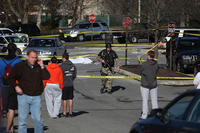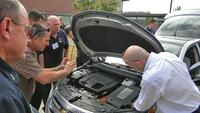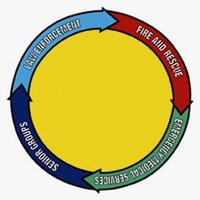-
Georgia readies portable hospitals
On Monday local health and emergency response officials from Georgia’s West Central Health District gathered to learn how to quickly set up a portable hospital in the event of an emergency
-
-
Measuring the effect of fire on materials
Researchers at Universidad Carlos III de Madrid (UC3M) are developing an infrared measuring method to analyze the thermal properties and resistance to fire of composite materials; this advance would have applications in areas where fire safety requires that the composite materials withstand high temperatures
-
-
New technology helps Virginia Tech avoid another massacre

Last week Virginia Tech officials made all the right decisions after a man killed a campus police officer, showcasing the valuable lessons it had learned following the 2007 Virginia Tech massacre that left thirty-two people dead and twenty-five injured
-
-
Key to disaster preparedness is “training, training, training”

Bonnie S. Michelman, CPP/CHPA, the director of police, security, and outside services at Massachusetts General Hospital, recently took the time to speak with Homeland Security NewsWire’s executive editor Eugene K. Chow; in their interview, Michelman highlights the recent technological security measures Massachusetts General has installed, finding the right balance between security and openness, and preventing terrorists from stealing the low-grade radioactive materials that are housed in hospitals
-
-
Water rescues prove dangerous for first responders
Water rescues are particularly dangerous for first responders, and the recent attempt to rescue a man who jumped from a bridge over the Oswego River in New York last month proved to be no exception
-
-
Grant helps Kentucky dive team operate without sight
Rescue and recovery divers often struggle to perform their duties in murky, muddy waters, but thanks to a $21,000 grant from Kentucky’s Homeland Security department, the city of Grayson was able to purchase a side-scan sonar and an underwater metal detector to help rescue divers complete their mission in low visibility conditions
-
-
New sensor system tracks, locate firefighters where GPS fails
With support from the National Science Foundation, electrical engineers are developing a portable device called the Sentrix Tracking Unit; it straps on like a belt and consists of a suite of sensors; the sensors help locates missing firefighters— saving time and maybe lives
-
-
First responders learn how to deal with electric cars

With the growing number of electric vehicles on the road, first responders are now faced with a new type of vehicle that they know little about, which could be potentially dangerous in the event of a fatal crash; to help emergency responders learn about the new technology on the road today, Tesla, a manufacturer of electric vehicles, recently held a training seminar at one of its locations in California
-
-
Disaster evacuation plans need to incorporate family perspectives
A recent study sponsored by the National Science Foundation found that most respondents felt the evacuation of New Orleans residents to the Superdome after Hurricane Katrina was a “failure” and this opinion has shaped their willingness to accept shelter if offered in an emergency evacuation
-
-
Emergency response for the disabled

Roughly 56 million Americans have a disability and with many living without a telephone or television, communicating with them in the event of a major disaster is no easy task; to address the needs of disabled Americans during natural and manmade disasters, emergency officials recently participated in a seminar called “Planning for the Whole Community”
-
-
Iridium offers emergency response service on satellite phone
Iridium offers free SOS service on its Iridium Extreme satellite phone; individuals who need emergency help can now maintain contact with an operator during the emergency rather than rely on one-way SOS alerting
-
-
Local towns signing up for Twitter and Facebook for emergency comm.
Following the lead of several other cities and federal agencies, the town of Wilton, Connecticut recently launched a Facebook page and Twitter account to help communicate with residents and share information during a disaster
-
-
Yellow Dot gets medical info to first responders fast

Emergency officials in Alabama recently introduced a new program aimed at quickly providing first responders with critical information during accidents; in the event of a car accident, first responders will be able immediately to find vital medical information on victims by simply looking in their glove compartment
-
-
Chicago emergency officials preparing for harsh winter

As Chicago braces for an especially brutal winter, the Cook County Department of Homeland Security and Emergency Management is doing its best to prepare residents, emergency responders, and work crews for the worst weather in the nation
-
-
New Jersey teams with Target for disaster response
During the next major disaster, New Jersey emergency responders will receive assistance from the big box retailer Target; last week the company announced that it had officially teamed up with New Jersey’s Office of Homeland Security and Preparedness to assist state and local officials in the event of a major disaster or terrorist attack
-
More headlines
The long view
Using Drone Swarms to Fight Forest Fires
Forest fires are becoming increasingly catastrophic across the world, accelerated by climate change. Researchers are using multiple swarms of drones to tackle natural disasters like forest fires.
